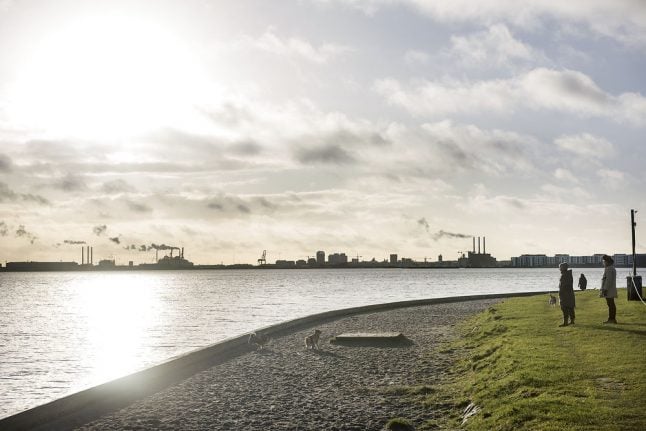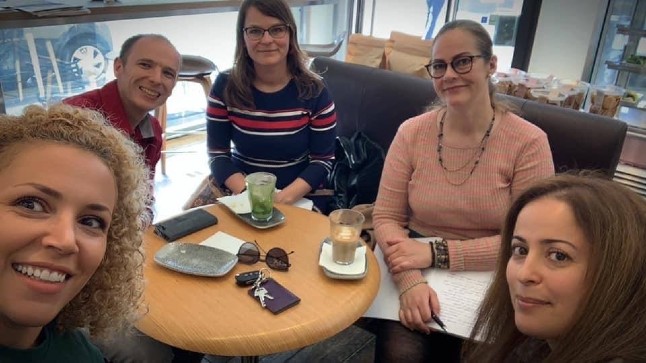According to the national stats agency, Copenhagen is by far the favourite city for Brits who've chosen to live in Denmark. The capital is followed by second-largest city Aarhus, also a university city. Copenhagen has almost six times as many British citizens as Aarhus, with 5,920 in Copenhagen, and 1,097 in Aarhus.
The next-most populous municipalities for Britons are Gentofte, with 755, and Frederiksberg with 661. These are also considered part of the greater Copenhagen area.
!function(){“use strict”;window.addEventListener(“message”,function(a){if(void 0!==a.data[“datawrapper-height”])for(var t in a.data[“datawrapper-height”]){var e=document.getElementById(“datawrapper-chart-“+t);e&&(e.style.height=a.data[“datawrapper-height”][t]+”px”)}})}();
These are followed by Odense with 563, 367 in Aalborg, 356 in Esbjerg, 278 in Lyngby-Taarbæk and 262 in Rudersdal.
The municipality with the fewest number of Brits is Læsø with only 3.
!function(){“use strict”;window.addEventListener(“message”,function(a){if(void 0!==a.data[“datawrapper-height”])for(var t in a.data[“datawrapper-height”]){var e=document.getElementById(“datawrapper-chart-“+t);e&&(e.style.height=a.data[“datawrapper-height”][t]+”px”)}})}();
As shown in the map above, Brits have spread quite far across the country and live in each of its 98 different municipalities.
Reasons for why they have chosen to live where they do vary and are reflected in part by the type of occupations they have.
“I moved to Denmark in 2010 after meeting a Danish man, but that’s not the reason I stayed. I live in Sengeløse which is (in) Høje-Taastrup Kommune, and I live there because the house prices are cheap and it’s only a 25-minute drive into central Copenhagen,” Dawn Wall, a British actress based in Denmark, said in a written comment.
Employment and income of Brits living in Denmark
British citizens who have made Denmark their home are registered as working in 37 different professions, according to data provided to The Local by Statistics Denmark. Of these, the top ten are: teaching, trade, hotels and restaurants, social institutions, consultancy, transport, IT and information services, construction, healthcare and culture and leisure.
In 2015, British citizens were among the nationalities with the highest income, according to a 2017 article published by Statistics Denmark on its website.
At the same time, there was also a large percentage recorded as being on low income or unemployed. The data shows that there were 1,711 Brits in the high-income bracket, 4,563 in the 'other wage' bracket, and 2,545 unemployed.
“An article we wrote in 2017 shows that Brits in Denmark more often than Danes are self-employed or have a high income. Brits are also more likely to be out of work, which is reflected in the fact that Brits are represented in both high and low-income groups,” Theis Stenholt Engmann, a journalist with Statistics Denmark, told The Local.
Interestingly, the number of self-employed Britons is relatively high compared to Danes.
Statistics Denmark figures show that there are currently 650 Brits who are self-employed. As a percentage of the population in Denmark, this is 6.3 percent of all Brits here, while 4.3 percent of Danes are self-employed.
Types of residency Brits have in Denmark
Based on statistics from January 1st, 2018, the majority of Brits living in Denmark do so under EU freedom of movement rules. To be exact, there are 8,455 Brits here based on EU free movement, and they are primarily here for work or study.
There is also a considerable group, 3,975 Brits, whose residency permits pre-date 1997, putting them into a different category in the Statistics Denmark figures. Other types of permits include family reunification, work permits and few who have a non-EU study permit.
Brits who have become Danish citizens
Data on the number of British citizens who have been awarded Danish citizenship shows a notable trend over the last ten years.
In 2008, 30 Britons became Danish citizens. The following year, the number increased to 49, but did not increase further and then dropped, staying between 20 and 25 between 2012 and 2015.
!function(){“use strict”;window.addEventListener(“message”,function(a){if(void 0!==a.data[“datawrapper-height”])for(var t in a.data[“datawrapper-height”]){var e=document.getElementById(“datawrapper-chart-“+t);e&&(e.style.height=a.data[“datawrapper-height”][t]+”px”)}})}();
In 2016, the year the UK voted to leave the EU, the number of Brits awarded Danish citizenship increased to 85, before almost doubling to 164 in 2017. Last year, 143 Britons became Danish citizens.
Although Brexit is a possible and arguably likely factor in this trend, it should also be noted that Denmark began allowing dual citizenship in 2015. Many who may previously have qualified to become nationalised in Denmark, but did not want to give up their British passport, may therefore have waited until this time to begin applying.
READ ALSO: Here's where Denmark's foreign residents live and where they come from




 Please whitelist us to continue reading.
Please whitelist us to continue reading.
Member comments